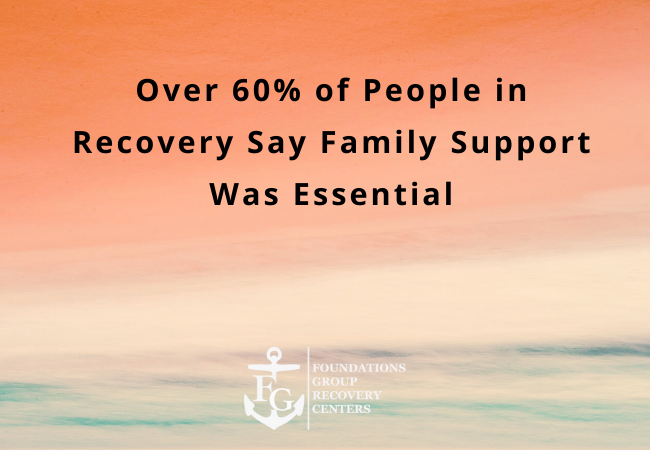Alcohol is one of the most widely consumed substances in the world. In many social settings, drinking is normalized, making it challenging to recognize when casual use has transitioned into dependency. For those living in Massachusetts and beyond, recognizing the early signs of Alcohol Use Disorder (AUD) is the first step toward reclaiming a healthier, sober life. This guide explores the physical, emotional, and behavioral signs of AUD, why early intervention is critical, and how to find the right support to begin recovery.
What Is Alcohol Use Disorder?
Alcohol Use Disorder is a medical condition characterized by an inability to control or stop drinking despite negative consequences. AUD can range from mild to severe, with symptoms affecting a person’s health, relationships, job performance, and mental well-being.
The disorder is not a result of moral weakness or lack of willpower—it is a chronic disease that alters brain chemistry, making it difficult for someone to stop drinking without support. The sooner AUD is identified and addressed, the better the outcome for long-term recovery.
Common Signs of Alcohol Use Disorder
Alcohol Use Disorder doesn’t develop overnight. It often begins subtly and escalates over time. The following signs may indicate that a person is struggling with AUD:
1. Increased Tolerance
Over time, individuals may need to consume more alcohol to achieve the same effects. This is one of the earliest physiological signs of a developing addiction.
2. Loss of Control
Someone with AUD may find it difficult to limit how much or how often they drink, even when they intend to cut back.
3. Neglecting Responsibilities
Alcohol can interfere with daily obligations. A person might miss work, neglect family duties, or perform poorly in school due to drinking.
4. Withdrawal Symptoms
When alcohol is not consumed, withdrawal symptoms like irritability, nausea, tremors, or insomnia may occur. These symptoms indicate physical dependence.
5. Continued Use Despite Consequences
Despite facing relationship issues, financial strain, or health problems due to alcohol, someone with AUD continues to drink.
6. Isolation or Secretive Behavior
Hiding drinking habits, drinking alone, or withdrawing from loved ones are common signs of alcohol misuse.
7. Using Alcohol to Cope
Relying on alcohol to manage stress, anxiety, depression, or trauma can point to a deeper issue and increase the risk of dependency.
The Importance of Early Intervention
AUD is progressive and can lead to serious health complications including liver disease, brain damage, heart problems, and mental health disorders. The longer it goes untreated, the more entrenched it becomes.
Seeking help at the first signs of trouble greatly improves recovery outcomes. It allows for more flexible treatment options and prevents irreversible damage to a person’s health and relationships.
Treatment Options for Alcohol Use Disorder
There is no one-size-fits-all solution to treating AUD. Instead, treatment should be personalized to the individual’s needs, the severity of the addiction, and their life circumstances. Massachusetts offers a wide range of options that cater to different levels of care and preferences.
One vital component of care is Alcohol & Drug Detox in Massachusetts, which provides medically supervised support to help individuals safely withdraw from alcohol. Detox is often the first step in the recovery process and helps manage the physical symptoms of withdrawal.
Therapy and Counseling in Recovery
Recovery doesn’t end with detox. In fact, that’s just the beginning. Therapy helps individuals address the root causes of their addiction, develop healthy coping skills, and learn to live without alcohol. Common therapeutic approaches include:
-
Cognitive Behavioral Therapy (CBT)
-
Motivational Interviewing (MI)
-
Family therapy
-
Group counseling sessions
These methods are integral to Addiction Treatment Programs in Massachusetts, which focus not just on sobriety, but on long-term healing and transformation.
Levels of Care in Alcohol Treatment
Depending on the severity of AUD and individual circumstances, people may benefit from different treatment levels. Understanding what’s available can help families make informed decisions.
Outpatient Care
Outpatient addiction Treatment in Massachusetts provides support while allowing individuals to live at home. It’s ideal for those with a strong support network, a mild to moderate AUD, and the motivation to stay sober without round-the-clock supervision.
Intensive Outpatient Care
More structured than standard outpatient services, intensive programs offer frequent therapy sessions and support. These programs offer a middle ground between residential treatment and outpatient care.
Partial Hospitalization
A Half Day Treatment Program in Massachusetts or full Day Treatment Programs in Massachusetts offer a high level of care during the day, but participants return home in the evening. This setup is ideal for those needing intensive support without full-time residential care.
Healing the Whole Person with Holistic Support
Many treatment programs are expanding beyond traditional therapy models to offer integrative care that supports the mind, body, and spirit. From yoga and meditation to nutrition planning and creative expression, these services enhance emotional well-being and reduce the risk of relapse.
At a comprehensive Addiction Treatment Center in Massachusetts, clients receive whole-person care designed to address underlying trauma, build emotional resilience, and foster meaningful life changes.
The Role of Family and Support Systems
AUD doesn’t just affect the individual—it impacts the entire family system. That’s why family involvement is crucial. Many treatment centers offer family therapy and educational resources to help loved ones understand the nature of addiction and how to support recovery.
Support groups such as Alcoholics Anonymous (AA), SMART Recovery, and local community programs also provide accountability, encouragement, and a sense of connection that reinforces long-term sobriety.

Long-Term Recovery and Aftercare
Leaving a treatment program isn’t the end of recovery—it’s the beginning of a new chapter. Aftercare programs are essential to helping individuals stay on track. These may include:
-
Continued outpatient therapy
-
Support group participation
-
Sober living arrangements
-
Relapse prevention planning
Sustained engagement in aftercare increases the likelihood of lasting success and personal growth.
Why Choose Foundations Group Recovery Centers?
Choosing the right treatment provider is one of the most important decisions someone struggling with alcohol use disorder can make. At Foundations Group Recovery Centers, we pride ourselves on delivering more than just treatment—we provide a supportive, compassionate environment that fosters healing on every level.
What makes us different begins with our individualized approach. No two paths to recovery are alike, which is why we build personalized treatment plans based on each person’s history, needs, and goals. From the moment you reach out, our experienced clinicians conduct thorough assessments to understand the underlying factors contributing to your alcohol use, whether those include trauma, co-occurring mental health conditions, or chronic stress.
Our team includes licensed therapists, addiction specialists, case managers, and peer support professionals who work together to ensure continuity of care. We take a trauma-informed, client-centered approach and integrate proven therapies like CBT, DBT, and motivational interviewing to help each person address both the physical and psychological dimensions of addiction.
But healing goes beyond clinical support. We offer access to wellness programming, holistic care options, and structured recovery groups that encourage personal growth and emotional resilience. Clients benefit from our strong therapeutic community, a space where they can share openly, find accountability, and feel truly seen and supported.
As a trusted Addiction Treatment Center in Massachusetts, we provide an environment that respects your dignity, understands your struggle, and stands beside you every step of the way. Whether you’re just beginning to recognize the signs of alcohol misuse or you’ve tried to quit before and need a more structured approach, we’re here with real solutions—and hope.
Conclusion
Recognizing that you or someone you love may be living with Alcohol Use Disorder is a pivotal moment. It’s often accompanied by fear, shame, confusion, or even denial. But behind that moment lies an opportunity—a chance to reclaim your life, your health, and your future.
Recovery doesn’t happen overnight, and it doesn’t happen in isolation. It takes the right tools, the right support, and the right environment to rebuild a life rooted in stability, clarity, and purpose. Whether you’re seeking help for the first time or returning to treatment after a setback, remember that progress is always possible. Healing happens in stages, and each step forward matters.
At Foundations Group Recovery Centers, we’re honored to walk this journey with you. We offer a full spectrum of treatment options, including Alcohol addiction Treatment in Massachusetts, delivered by compassionate professionals who understand the complexities of addiction and the strength required to overcome it.
If you’re ready to explore recovery or support a loved one in doing so, we’re here to help. Call us today at (844) 763-4966 to take that first step toward a healthier, alcohol-free future. You don’t have to wait for things to get worse—you can start getting better now.
Frequently Asked Questions (FAQs)
What are the early warning signs of alcohol use disorder?
Early signs of alcohol use disorder include increased tolerance, drinking more than intended, failed attempts to cut back, neglecting responsibilities, and using alcohol to cope with stress or emotions. Physical symptoms like changes in sleep, mood swings, or withdrawal symptoms when not drinking can also appear early in the disorder.
How is alcohol use disorder diagnosed?
Alcohol use disorder is typically diagnosed through a clinical evaluation, which may involve a structured interview, assessment tools like the AUDIT (Alcohol Use Disorders Identification Test), and a review of behavioral patterns. A healthcare professional will assess the severity of the condition based on criteria in the Diagnostic and Statistical Manual of Mental Disorders (DSM-5).
What treatment options are available for alcohol addiction in Massachusetts?
Massachusetts offers a wide range of treatment options including medical detox, residential treatment, day programs, outpatient services, and holistic care. Foundations Group Recovery Centers provides access to Day Treatment Programs in Massachusetts, counseling, medication-assisted treatment, and aftercare support tailored to each individual’s needs.
How can I support a loved one who may have alcohol use disorder?
Supporting a loved one starts with open, non-judgmental communication. Educate yourself about alcohol use disorder, encourage them to seek professional help, and offer to support them through the process. Attending family therapy or support groups can also be beneficial for both the individual and their support system.
Is alcohol detox necessary before entering treatment?
Yes, in many cases detox is the essential first step before beginning therapy or rehabilitation. Alcohol & Drug Detox in Massachusetts helps individuals safely manage withdrawal symptoms and prepares them physically and emotionally for the next phase of treatment.

